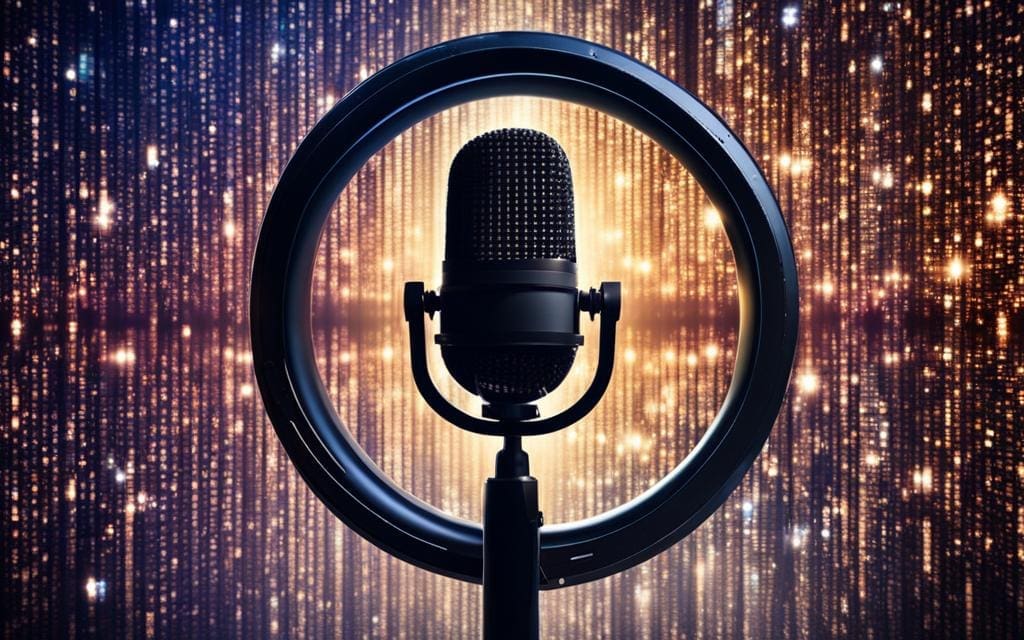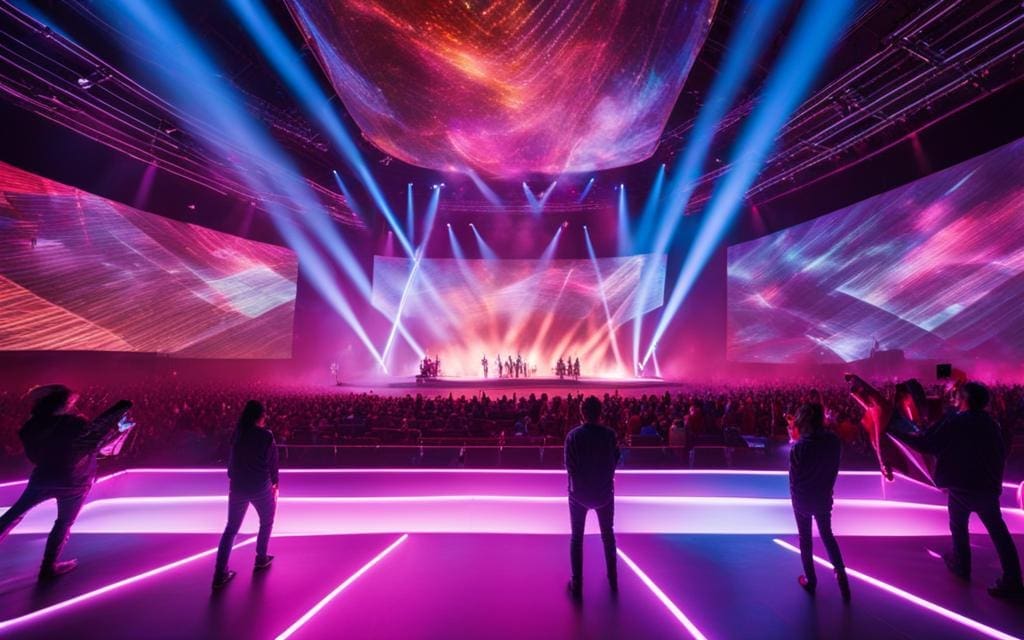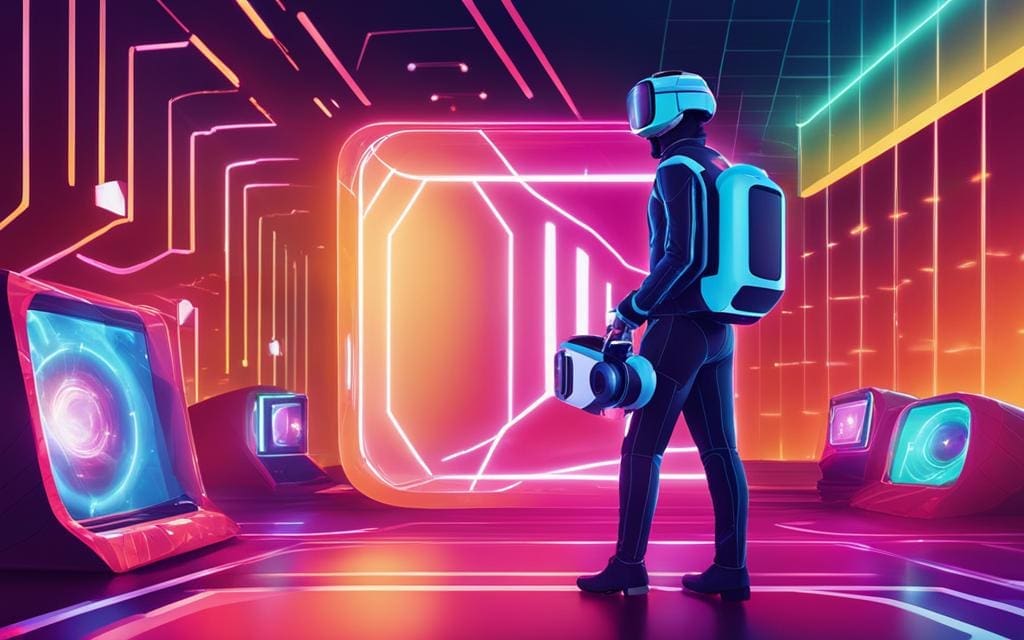Artificial intelligence (AI) is revolutionizing the entertainment industry by transforming the way you consume and interact with content. From personalized recommendations to AI-generated music and art, AI is reshaping the entertainment experience. This article explores the impact of AI on the entertainment industry, examining current applications and upcoming trends.
Key Takeaways:
- AI is changing the way we consume and engage with entertainment content.
- Personalized content recommendations powered by AI improve the entertainment experience.
- AI-generated music and art offer new creative possibilities.
- AI enhances film and video game production through automation and special effects.
- AI enables enhanced personalization and convenience in entertainment.
AI in Personalized Content Recommendations
Streaming platforms like Netflix and Spotify are leveraging the power of AI algorithms to revolutionize the way personalized content recommendations are made. By analyzing factors such as user preferences, viewing habits, search history, ratings, and playlists, these algorithms can provide tailored suggestions that align with individual interests.
Netflix, for example, uses its algorithm to analyze millions of hours of user data every day, resulting in approximately 80% of content being discovered through personalized recommendations. This level of personalization enhances the entertainment experience by helping users discover new content they are likely to enjoy, based on their unique tastes and preferences.
AI algorithms for content recommendations are constantly evolving and improving. They can analyze vast amounts of data and apply machine learning techniques to provide more accurate and relevant recommendations over time. This not only benefits users by helping them discover new and exciting content, but it also enables streaming platforms to increase user engagement and retention.
Table: AI in Personalized Content Recommendations
| Benefits of AI in Personalized Content Recommendations | Challenges of AI in Personalized Content Recommendations |
|---|---|
|
|
By harnessing the power of AI in personalized content recommendations, streaming platforms are transforming the way we discover and consume entertainment. Whether it’s finding your next favorite TV show or discovering a new artist to listen to, AI algorithms are enhancing the overall entertainment experience by delivering content that is tailored to individual preferences and interests.
AI-Generated Music and Art
Artificial intelligence (AI) is revolutionizing the creative landscape, enabling the generation of music and art that rivals the work of human creators. AI algorithms have the ability to compose professional-quality music and create visual artwork, opening up new possibilities in the entertainment industry.
Tools like Amper Music and Aiva Technologies utilize AI to generate music for films, TV shows, and commercials. These AI-driven music composition tools produce customized and dynamic soundscapes that cater to specific moods and scenes. With the ability to seamlessly integrate with various production workflows, AI-generated music is transforming the way soundtracks are created.
AI is also making its mark in the world of visual arts. Artists and researchers are exploring the creative potential of AI-generated art, using algorithms to produce visually stunning pieces. The use of generative adversarial networks (GANs) allows AI to learn from a vast database of existing artwork and generate entirely new and unique pieces. While there are debates surrounding the emotional depth of AI-generated art, it undeniably presents an exciting frontier in creative expression.
The integration of AI in the creation of music and art is not about replacing human creativity, but rather expanding the boundaries of artistic possibilities. It allows artists and creators to explore new avenues and experiment with innovative techniques that were previously unimaginable.
Table: AI-Generated Music and Art Platforms
| Platform | Description |
|---|---|
| Amper Music | AI-powered music composition tool that creates customized soundtracks for films, TV shows, and commercials. |
| Aiva Technologies | AI platform that composes professional-quality music for various applications, including film and advertising. |
| GAN-generated Art | Artistic creations generated by AI using generative adversarial networks (GANs), exploring new possibilities in visual arts. |
The incorporation of AI in music and art creation is transforming the entertainment industry. It offers new avenues for artistic exploration and provides creators with innovative tools to enhance their work. While AI-generated music and art may not possess the same emotional depth as human creations, they undoubtedly contribute to the evolution of the entertainment landscape, enabling new forms of creative expression.
AI in Film and Video Game Production
Artificial intelligence (AI) is making waves in the film and video game industries, revolutionizing the way content is produced. With AI-powered tools and algorithms, filmmakers and game developers can streamline their workflows, enhance special effects, and create immersive experiences. Let’s explore some of the key ways AI is transforming film production and video game development.
AI-Assisted Editing
AI-assisted editing tools are revolutionizing the post-production process in the film industry. These tools automate tasks such as color correction, audio syncing, and scene selection, reducing the time and effort required for manual editing. By analyzing vast amounts of data, AI algorithms can identify patterns and make intelligent editing decisions, resulting in faster and more efficient workflows. This allows filmmakers to focus on the creative aspects of their projects and deliver high-quality content to audiences.
Another area where AI is making an impact is in the development of video games. AI-powered special effects software can create realistic simulations, eliminating the need for physical props and green screens. This not only saves time and resources but also enables game developers to create visually stunning and immersive experiences for players. Additionally, AI enables the development of sophisticated non-player characters (NPCs) with realistic behaviors, making gameplay more dynamic and engaging.
AI-Powered Special Effects
AI-generated special effects are revolutionizing the way films and video games visually captivate audiences. By leveraging AI algorithms, filmmakers and game developers can create stunning and realistic effects that were once only possible through manual labor and extensive resources. AI-powered special effects software can simulate realistic physics, generate complex particle systems, and even create lifelike virtual environments. This opens up new creative possibilities and allows storytellers to bring their visions to life in ways that were previously unimaginable.
With AI’s ability to analyze and synthesize vast amounts of data, film producers and game developers can now create complex visual effects with greater efficiency and accuracy. The result is visually stunning and immersive content that enhances the overall entertainment experience for viewers and players alike.
| AI in Film Production | AI in Video Game Development |
|---|---|
| Automated editing tasks | Realistic simulations |
| Intelligent scene selection | Sophisticated non-player characters |
| Efficient color correction | Immersive gameplay experiences |
Enhanced Personalization Through AI
One of the key advantages of AI in the entertainment industry is its ability to provide enhanced personalization. Through machine learning algorithms and predictive modeling, AI can analyze user behavior and preferences to create tailored experiences that cater to individual tastes and interests.
For example, in virtual reality (VR) experiences, AI can create customized avatars that closely resemble users, allowing them to immerse themselves in a virtual world that feels uniquely their own. This level of personalization enhances the sense of presence and engagement, making the VR experience more meaningful and enjoyable.
In video games, AI-driven predictive modeling can anticipate a player’s preferences and dynamically adapt the game’s narrative, gameplay mechanics, and difficulty level to match their individual playstyle. This ensures that each player has a personalized gaming experience that is challenging yet satisfying.
Furthermore, AI-powered recommendation systems in streaming platforms can analyze user data such as viewing history, ratings, and genre preferences to curate a personalized catalog of movies, TV shows, and music. This not only saves users time by offering relevant content suggestions but also introduces them to new and exciting entertainment options they may not have discovered on their own.
Table: Personalized Experiences Enabled by AI in Entertainment
| Industry | AI Application | Key Benefit |
|---|---|---|
| Virtual Reality | Customized avatars | Enhanced immersion and personalization |
| Video Games | Predictive modeling for gameplay | Tailored gaming experience |
| Streaming Platforms | Personalized content recommendations | Discover new entertainment options |
As AI continues to advance, the level of personalization in the entertainment industry will only become more refined and accurate. Machine learning algorithms will gain a deeper understanding of individual preferences, making recommendations and experiences even more tailored to each user’s unique tastes and preferences.
Natural Language Processing (NLP) in Entertainment
Natural Language Processing (NLP) is revolutionizing the way we interact with entertainment content. With voice-activated interfaces and AI-powered chatbots, NLP is enhancing the accessibility and convenience of entertainment for consumers. Voice-activated interfaces like Amazon Alexa and Google Home allow you to control your entertainment experiences with simple voice commands, creating a seamless and convenient experience.
AI-powered chatbots are transforming customer service interactions in the entertainment industry. These chatbots provide instant assistance and answer questions in a conversational format. Whether it’s getting recommendations for a movie or troubleshooting issues with a streaming service, AI-powered chatbots are there to assist you, enhancing your overall entertainment experience.
“NLP is revolutionizing the way we interact with entertainment content.”
NLP in Action: Voice-Activated Interfaces
Imagine sitting on your couch, wanting to watch a movie, and simply saying, “Alexa, play a comedy movie.” Within seconds, your voice-activated interface responds, playing a selection of comedy movies tailored to your preferences. With NLP, voice-activated interfaces can understand and interpret natural language, allowing you to navigate and enjoy your entertainment effortlessly.
NLP technology is constantly evolving, enabling voice-activated interfaces to understand context, accents, and complex queries. As a result, these interfaces are becoming more accurate and intuitive, making it easier for you to find the entertainment you love.
With NLP, the future of entertainment is becoming more personalized, convenient, and interactive. As AI continues to advance, NLP will play a vital role in shaping the way we consume and engage with entertainment content. So sit back, relax, and let NLP enhance your entertainment experience.
AI in Live Events and Performances
AI is not limited to digital experiences; it also plays a role in live events and performances. The integration of AI-powered lighting and sound systems has revolutionized the atmosphere and energy of concerts, theaters, and sports events. By analyzing real-time data and audience reactions, these systems can dynamically adjust colors, patterns, and sound levels to enhance the overall experience.
In addition to lighting and sound, AI-assisted event planning has also transformed the logistics of live events. AI algorithms can optimize crowd flow, seating arrangements, and venue layouts, ensuring a smoother and more enjoyable experience for attendees. By predicting potential bottlenecks and making real-time adjustments, event organizers can create a more efficient and engaging environment.
Furthermore, AI has the potential to introduce interactive elements into live events. For instance, AI-powered chatbots can provide event information, answer questions, and even engage in conversational experiences with attendees. This technology creates a more personalized and interactive atmosphere, allowing event-goers to have a unique and immersive experience.
| AI in Live Events and Performances | Benefits |
|---|---|
| AI-powered lighting and sound systems | Enhances the atmosphere and energy |
| AI-assisted event planning | Optimizes logistics and crowd flow |
| AI-powered chatbots | Provides personalized and interactive experiences |
With AI’s integration into live events and performances, attendees can expect a more immersive, engaging, and seamless experience. The combination of AI-powered lighting and sound systems, AI-assisted event planning, and interactive elements creates an environment that captivates and delights the audience. As technology continues to advance, AI’s impact on live events and performances will only grow, enhancing the entertainment industry as a whole.
Creating New Forms of Entertainment with AI
Artificial intelligence (AI) is not only revolutionizing the way we consume entertainment but also paving the way for new forms of content creation. With AI-driven technology, we are witnessing the emergence of AI-generated content that challenges traditional notions of creativity.
AI algorithms have the ability to generate music, videos, and stories that exhibit an artistic creativity previously thought to be exclusive to human creators. These AI-generated works are pushing the boundaries of what is possible in the entertainment industry, opening up new artistic frontiers.
For example, AI-generated music has become a popular and widely accepted form of composition. Platforms like Jukedeck and Amper Music utilize AI algorithms to produce professional-quality music for various mediums such as films, commercials, and TV shows. This AI-driven approach to music creation allows for endless possibilities and a wider range of creative expression.
“AI-generated content is challenging the status quo and tapping into a realm of artistic creativity previously unexplored.” – Industry Expert
However, along with this exciting potential comes ethical considerations. As AI-generated content becomes more prevalent, questions arise regarding the value of human creativity and the ownership of AI-generated works. Society must grapple with these issues as AI continues to integrate into the entertainment industry.
| AI-driven New Forms of Entertainment | Examples |
|---|---|
| AI-generated music | Jukedeck, Amper Music |
| AI-generated videos | DALL-E, DeepArt.io |
| AI-generated stories | GPT-3, Heliograf |
As AI technology continues to advance, we can expect even more innovative forms of AI-driven entertainment to emerge. The fusion of AI and human creativity has the potential to redefine the way we experience and engage with entertainment, pushing the boundaries of what is possible in the industry.
Conclusion
The integration of AI in the entertainment industry is having a profound impact on the way we consume and engage with content. From personalized recommendations to AI-generated music and art, AI is revolutionizing various aspects of the entertainment experience.
With advancements in machine learning, natural language processing, and computer vision, AI is transforming film production, video game development, live events, and more. Streaming platforms are using AI algorithms to provide personalized content recommendations, helping users discover new content that aligns with their interests.
AI is also revolutionizing the creation of music and art, with algorithms generating compositions and artwork of professional quality. In film and video game production, AI-powered tools are automating tasks and creating more immersive experiences. AI enables enhanced personalization by analyzing user behavior and preferences, creating tailored experiences.
Furthermore, AI is enhancing the accessibility and convenience of entertainment through natural language processing, allowing users to control their experiences with voice commands and providing instant assistance through chatbots. AI’s impact extends to live events, where it enhances lighting, sound systems, and event planning.
The future of AI in entertainment is filled with exciting possibilities. As technology advances, the industry can expect even more innovative applications, with enhanced personalization, seamless interactions, and dynamic experiences. Embrace the future of AI in entertainment to be a part of this transformative journey.




